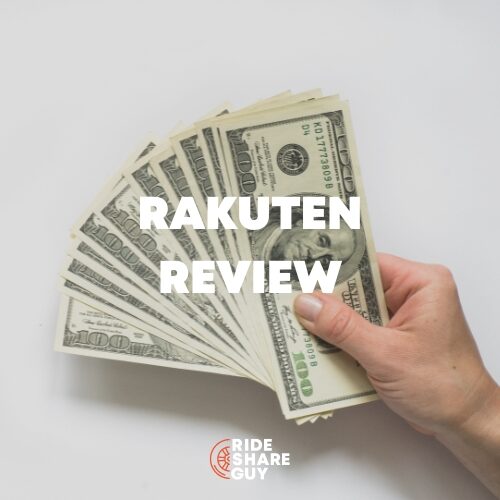One week you go to the grocery store and your favorite 12-ounce soft drink is in an 8-pack. The next time you go, it’s a 6-pack, and the bottles only hold 8 ounces—oh, and the cost appears to have gone up a dollar or two as well!
It may seem like this is happening more and more. Unfortunately, it’s not your imagination. The price of everything is going up, yet the size of the product keeps getting smaller. If you’re wondering what’s happening, it’s a phenomenon known as inflation, and it’s hitting many people hard.
According to CNBC, inflation hit a new 40-year high in June and although it’s dropped a few points since then, it doesn’t seem like it’s going to go down anytime soon. This has caused many people to rethink how they spend their money in all aspects of their lives, especially how they shop.
Joanne Lee told NPR she buys regular eggs now rather than the more-expensive, free-range kind she prefers. There’s also a certain crouton she likes, but since it’s more expensive than the generic brand, she’s switched over.
While we usually think of inflation as simply the cost of food and gas going up, there’s actually a lot more to it than that. From higher interest rates to lower stock prices, inflation can affect every aspect of our lives.
Below, we’ll cover what you need to know about dealing with inflation both as a driver and as a consumer.
Dealing with high gas prices? Get the Upside app and save up to 62¢/gal when you use the promo code RSG25. Click here to download the Upside app.
What is inflation?
The United States Department of Labor defines inflation as the “general upward price movement of goods and services in an economy.”
Inflation shrinks the value of money. The higher the prices, the lesser the dollar’s worth. Back in the day, you could buy a paperback book for under $5; today, the same book costs you around $14 or more.
Governments typically measure inflation via the Consumer Price Index by hypothesizing the average goods and services an average consumer might buy. This generally includes the food, transportation, bills, and rental costs.
Governments monitor inflation by reporting and tracking how the CPI changes every month and year. So, when people refer to the inflation rate, they’re talking about the CPI changes from year to year.
How to prepare for inflation
Preparing to tackle inflation before it hits doesn’t hurt. Inflation quickly declines the value of money and negatively affects purchasing power. However, you can protect the money’s value and battle the monster by earning better through the right investment.
Here are a few tips to prepare for inflation:
- Real estate. High inflation raises rental prices, interest rates, and construction material costs. Therefore, you can invest in real estate timely and generate income during challenging times.
- Cash-back apps. Instead of tossing away your receipts, consider using a cash-back app like Upside to produce income. Simply scan the grocery receipts, upload them, and earn rewards for buying your daily items. This will save you money in the long run.
- Stocks. Because inflation causes uncertainty, investors sell out their shares to invest their money in a safe place. As a result, firms’ profitability decreases, and their shares become less enticing to investors. People who frequently invest in stocks must remain cautious of impending inflation.
- Debt. Avoid taking variable interest rate debt as it increases with rising inflation. On the other hand, fixed-rate debt remains unaffected by inflation. It’s because the total money you owe is fixed.
How to deal with inflation
How a consumer tackles inflation would differ from how an entrepreneur handles it. Therefore, it is crucial to understand ways to deal with inflation to make challenging times less stressful.
As a consumer
- Consider establishing a habit of tracking your expenses quarterly. It will help you make adjustments and reduce unnecessary spending.
- Advocate smart shopping. For instance, buy near closing time to get discounts or purchase second-hand items from reliable platforms. Besides, use debit and credit cards that fit your lifestyle to earn cashback.
- Buy the car you lease to get a vehicle for an inflation-free price. Even if you want to purchase another model, buy your used car because its market value has risen. Sell it yourself and save the profit to purchase your dream car.
- The rising inflation demands employees sharpen their bargaining skills. It’s time to ask the employer for a salary raise.
- Upload your receipts to cash-back apps like Upside to earn points and redeem them in the form of cash.
As a business owner
- Automating processes streamlines your business and eases the effect of inflation. Not only does it improves productivity, but it also reorganizes operations that were otherwise squeezing money.
- Carefully analyze your profit margins and increase them strategically to continue producing quality products.
- Cut the expenses where possible. For instance, if you can use inexpensive alternative materials for products, consider replacing those costing more.
- Tackle inflation by addressing supply chain problems and stocking up the much-needed materials.
- Consider raising the prices judiciously to combat inflation. Be careful not to turn off the customers through a dramatic price rise. Instead, add modest increments and increase the rates strategically.
As a retiree
- Retirees can benefit from the Treasury inflation-protected security issued and backed by the US government.
- Watch out for your spending patterns as a retiree. Instead of tracking the spending for the last 2 weeks, skim through the credit and debit card statements for the last 3-6 months. It’ll help you figure out where your money is going and what you can do to reduce it.
- If you plan to take a vacation but haven’t yet paid for it, consider postponing your trip. Instead, utilize the money for your day-to-day living.
- Make a habit of using cash-back apps like Upside. A little consistency is all it takes to generate a side income. Upload your purchase receipts regularly and qualify for rewards and cash.
- If you plan to live in the same hometown, consider moving to a smaller home to minimize expenses. Look for a town that caters to the needs of retirees with services and supermarts close to the neighborhood.
Why is inflation both good and bad?
Although inflation is notorious, given that it increases the overall prices, it isn’t necessarily bad. In fact, many politicians, economists, and entrepreneurs advocate moderate inflation levels to enhance consumption.
Besides, high spending levels are also beneficial to a country’s economy.
As such, the Federal Reserve annually targets a specific inflation rate for the US. The system believes that gradually increasing the prices benefits business people and keeps consumers from waiting for low prices before purchases.
A few, on the other hand, believe inflation prevents deflation, which signifies a massive economic downturn.
Some economists also recommend targetting high inflation rates during economic stagnation periods. So, inflation combines the good and the bad, as we’ll see in the explanation below.
The Good
- Deflation is harmful to the economy as it reduces spending and growth. Falling prices encourage customers to delay purchases in hopes of buying products at cheaper rates.
- Moderate inflation enables price adjustments and allows goods to attain their actual costs.
- It also minimizes the value of debt, allowing people to pay it off.
- Moderate inflation leads to healthy economic growth and indicates a progressing country.
- It also adjusts relative wages, enabling organizations to freeze pay rises for less productive employees.
The Bad
- Economists argue that countries with high inflation rates have less investment and economic growth rates. More inflation causes chaos and uncertainty, confusing people and impacting their investment decisions.
- Inflation reduces the value of savings which affects retirees who typically live on savings. However, it also depends on the interest rates. Interest rates higher than inflation might not make a difference to savings.
- Inflation also reduces international competition, leading to few to no exports and affecting the existing account balance of payments.
- Hyperinflation can harm the savings of the middle class and may lead to wealth redistribution to those with property and assets.
Effects of inflation
A growing economy typically leads consumers to spend more. Higher spending naturally increases the prices. Because the wages drive up with the increasing costs, the purchasing power remains more or less the same.
That by no means indicates inflation is positive. In fact, it can take a toll on the financial wellness of someone earning a fixed income. However, knowing the effects of inflation helps make smart financial decisions and avoid uncertainty.
Increases living costs
Inflation raises living costs – period. The more the goods and service prices go up, the more people spend on their overall expenses, from rent to fuel and healthcare to food.
The best way to tackle the rising living costs is to keep your income growing. Consider negotiating for a salary raise or use cash-back apps like Upside to get cash back on items you would already purchase anyway.
Further, adjust your investments to bring enough money to make up for high prices. Lastly, keep an eye on items in your budget. For instance, consider walking or biking to work if fuel prices drive up.
Lifts employment
Inflation reduces the unemployment rate, which also drives up wages. Because inflation and consumer demand go hand in hand, high demand encourages firms to hire more employees to produce more.
This is also generally beneficial to the economy because individuals who are working and making money spend more than unemployed folks.
But again, high inflation doesn’t mean high economic growth. The US, for instance, experienced a blend of economic stagnation, inflation, and reduced growth, called stagflation, in the late 1970s and early 1980s.
Reduces debts
Inflation is the best friend of anyone who owes a debt. Paying off your debt using the dollar that loses value every year represents the reduced purchasing power of the time you took the loan.
Say you bought a house on a 4-year fixed rate mortgage in the 1970s. It costs around $50,000, and your mortgage interest rate is $6%. You’re required to pay a mortgage payment of around $316 monthly.
In the same year, inflation rose and stayed above 7% for the next 9 years. The rates are soaring by 7% yearly, and so is your income. However, the mortgage remains the same.
So, you’re paying the same percentage of your income for the house, but the bank that gave you money is getting reduced value for the investment. So, if you plan to take a loan in the future, consider getting it during high inflation months.
Decreases the value of savings
Inflation may be good for borrowers, but it isn’t so for savers – essentially those who save in the form of cash.
Say you have saved $200 for challenging times.
If the inflation goes up to 5%, you’ll only have 95% worth of purchasing power from that $200 stashed in your savings. As time passes by, your money will depreciate even more with growing inflation.
Dealing with high gas prices? Get the Upside app and save up to 62¢/gal when you use the promo code RSG25. Click here to download the Upside app.
Why Is inflation challenging to tackle?
Although the Federal Reserve has made tackling inflation its priority, taming it feels like an uphill battle.
The Fed increases the interest rates to control inflation. However, it takes 1-2 years to produce an effect. Several reasons contribute to why the inflation policy takes a long time to bear fruit.
To begin with, people overlook paying attention to the interest rates. Instead, they start noticing things when their daily life gets impacted by increasing interest rates, including credit card bills and mortgages.
This encourages them to take action; purchase fewer items and fewer homes. Consequently, firms reduce prices and the market recovers.
However, inflation doesn’t always have to do with interest rates or Fed. China lockdowns, Ukraine wars, and supply chain issues also lead to inflation. Further, who knows what else may bump along and spike inflation?
Economists refer to it as a “long and variable lag” between the inflation control policy and its results. Therefore, taming the inflation beast is a hard row to hoe.
Final Words
As you can see, inflation is sometimes a necessary evil. In moderation, it can help boost wages and can even benefit the economy. When inflation becomes excessive,though, it can put a real hurt on your pocketbook.If left unchecked, it can even ruin an economy and send it into a steep recession or even towards a depression.
To stay on the winning side, it’s important to recognize the signs of inflation and adjust your spending accordingly when they first appear. By making smart choices before it gets worse – you can get through it, allowing you to thrive once you’re on the other side.
Dealing with high gas prices? Get the Upside app and save up to 62¢/gal when you use the promo code RSG25. Click here to download the Upside app.




